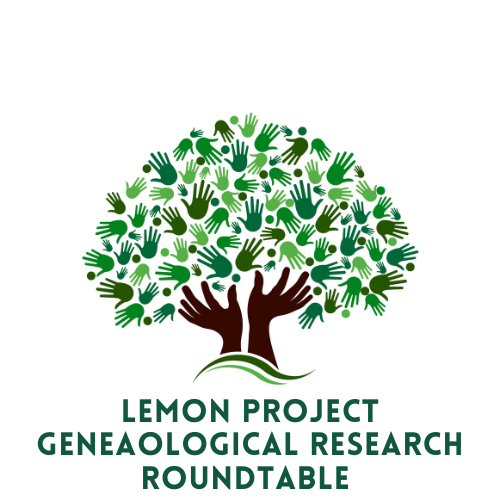Thursday, Jan. 19, the Lemon Project at the College of William and Mary held the first of their monthly Spring 2023 Genealogical Research Roundtables. These roundtables are scheduled to meet once a month from January to May 2023 via Zoom, where genealogists and family historians are able to share their knowledge and resources to assist each other in any research challenges they may be facing. This series is focusing on slavery and post-Emancipation era Black history in Virginia.
The roundtable was led by Jajuan Johnson, a Postdoctoral Research Associate working with the Lemon Project. Johnson began the talk by introducing himself and outlining the main goals of the discussion, before allowing attendees to introduce themselves, their background and research connections to Black genealogy. The attendees included a variety of individuals, ranging from local residents who are searching for information about their ancestors to staff members at the College who have research backgrounds which could be beneficial for those looking for genealogical information.
“We’ve been very fortunate to build a community of genealogical researchers over the past couple years, make some breakthroughs in our own researchers, but this is an effort to connect more with people because we understand that many people in the community are working on projects and they overlap with what we’re doing.”
“We’ve been very fortunate to build a community of genealogical researchers over the past couple years, make some breakthroughs in our own researchers, but this is an effort to connect more with people because we understand that many people in the community are working on projects and they overlap with what we’re doing,” Johnson said. “And so, we want to share, you know, any of our findings, and also just open this space up to have some rich genealogical conversations.”
The participants were mainly locals from the greater Williamsburg and Tidewater areas, including several with ties to the College. Kiana Wilkerson ’18 was among the attendees in the Zoom meeting who discussed how she wanted to take advantage of genealogical resources that she hadn’t formerly used when she was still a student at the College.
“So I’m kind of here for two reasons, one for myself because I want to actually start doing this work,” Wilkerson said. “This job makes me want to start helping my family members do their ancestry and find our kind of history and then sideways trying to build up that community of people who’s trying to find all this ancestry to help out the other descendants that I’m working with.”
Jessica Ramey, an instruction and research librarian at Earl Gregg Swem Library, also attended the meeting. Ramey frequently works with students and library patrons with information related to genealogical research. She discussed several resources available at Swem, such as the Virginia Historical Index and historical government records that are available through Special Collections. She also emphasized that Swem mainly contains records related directly to people from Virginia, and more specifically, the College.
So, we do have a number of wills, a number in monograph form, again on microfilm. So, there’s lots to find in our collection and I would really encourage you to come in if you are in the area and you want to, you know, look at some things you are more than welcome to. So, you can email our research desk questions and I will tackle them to the best of my ability.”
“And you know, we have a lot of hidden gems in our collection,” Ramey said. “So, we do have a number of wills, a number in monograph form, again on microfilm. So, there’s lots to find in our collection and I would really encourage you to come in if you are in the area and you want to, you know, look at some things you are more than welcome to. So, you can email our research desk questions and I will tackle them to the best of my ability.”
After the introductions concluded, attendees were able to ask specific questions relating to any issues they had been facing in their genealogical searches. Many attendees helped direct others on where to find information about specific surnames, government documents and records about their ancestors who were enslaved. While some attendees were just starting their genealogical research, others farther along in their journeys gave advice on local resources to use during the beginning of their searches.
The next genealogical roundtable will be hosted on Zoom Thursday Feb. 16, and members of the public and college community can register on the Lemon Project’s website.

